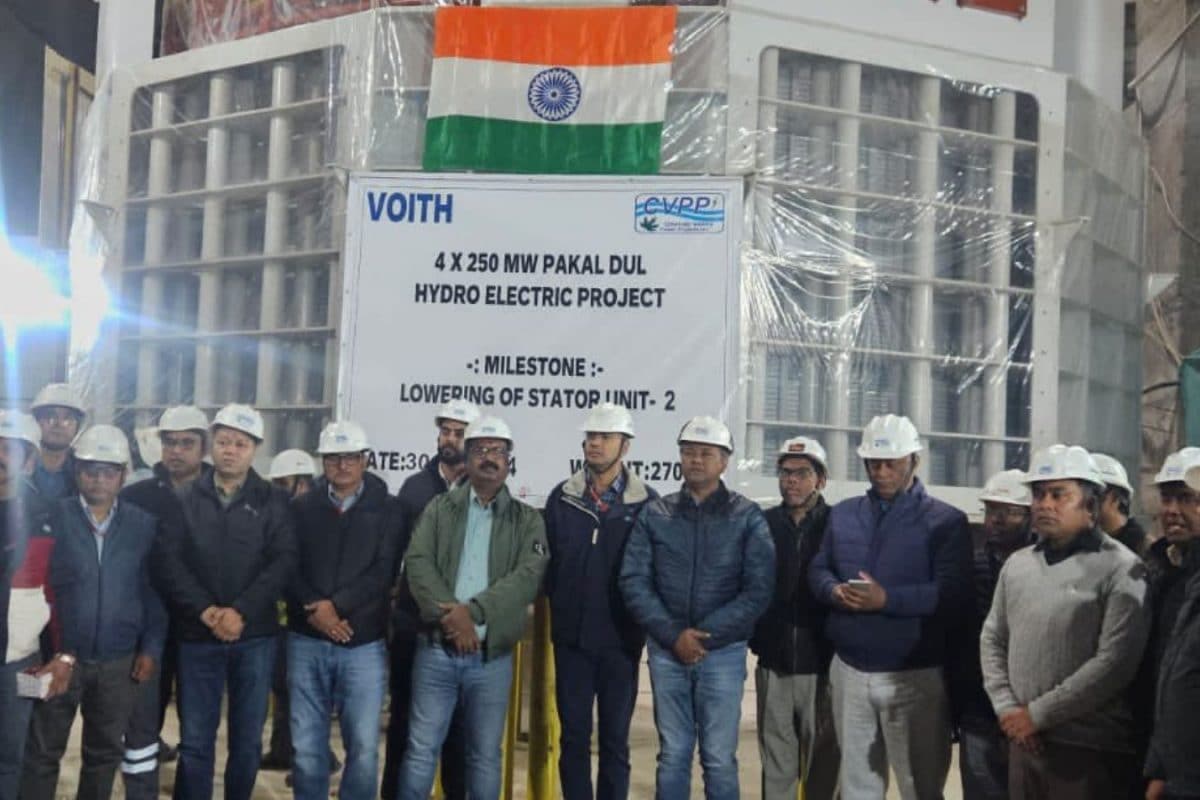

India is accelerating the construction of the Pakal Dul Dam in Jammu and Kashmir, a move that has the potential to exacerbate water tensions with Pakistan. This action is viewed by some as a strategic maneuver to exert pressure on Pakistan, especially after the suspension of the Indus Waters Treaty (IWT).
The Pakal Dul Dam is a 1,000 MW hydropower project on the Chenab River, designed to store 0.125 million acre feet (MAF) of water. While India maintains that the project adheres to the storage limits permitted under the IWT, Pakistan fears that the dam's storage capacity exceeds the allowed limit of 0.15 MAF, enabling India to regulate the flow of the Chenab River, particularly during the dry season.
Recent reports indicate that India has already reduced water discharges from the Chenab River into Pakistan. Water flows at the Marala headworks, a key point for monitoring water flow into Pakistan, have drastically decreased from a balanced flow of 34,600 cusecs to approximately 3,100-5,300 cusecs. This reduction is attributed to India filling its reservoirs, including the Pakal Dul, Baglihar, and Salal Dams. These three dams collectively can hold over 1.2 million acre-feet of water.
The consequences of these actions could be significant for Pakistan. The Chenab River is a crucial water source for Pakistan's irrigation system, which supports extensive agricultural lands in Punjab. Reduced water inflows could lead to substantial crop shortages during the Kharif season, potentially impacting Pakistan's economy, which relies heavily on agriculture.
Furthermore, there are concerns that sudden releases of water from the dams could create flood-like conditions downstream, posing a risk to the local population. Pakistan has already expressed its concerns about these uncommunicated actions, raising questions about the long-term stability of water supplies.
In response to the situation, India has stated it is undertaking desilting and flushing of reservoirs at existing hydropower projects like Baglihar and Salal to improve water storage. Simultaneously, India is expediting the construction of other hydropower projects in the region, including Kiru, Kwar and Ratle. These projects, combined with increased storage capacity, could allow India to utilize more water from the western rivers, further impacting Pakistan's water supply.
Pakistan views any attempts to impede or divert water flow as an "act of war," emphasizing its dependence on the Indus River system for agriculture and hydroelectric power. The ongoing water disputes and infrastructure developments underscore the complex and sensitive nature of water sharing between India and Pakistan.